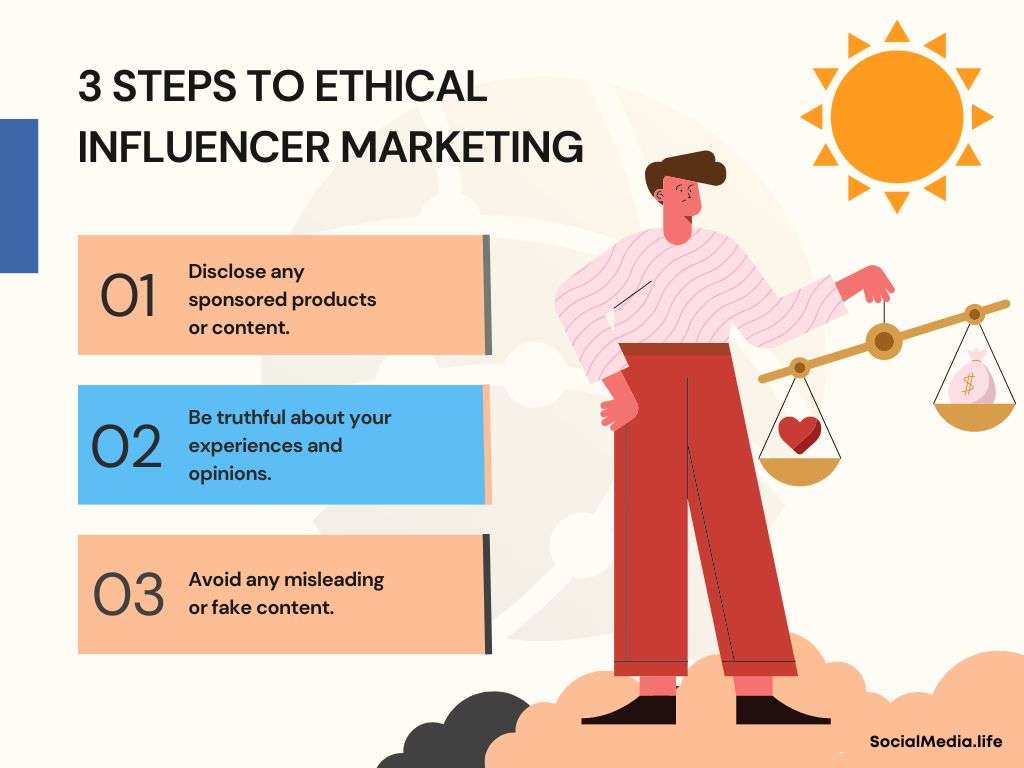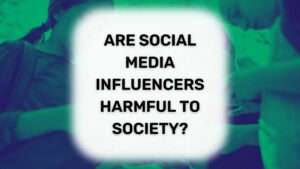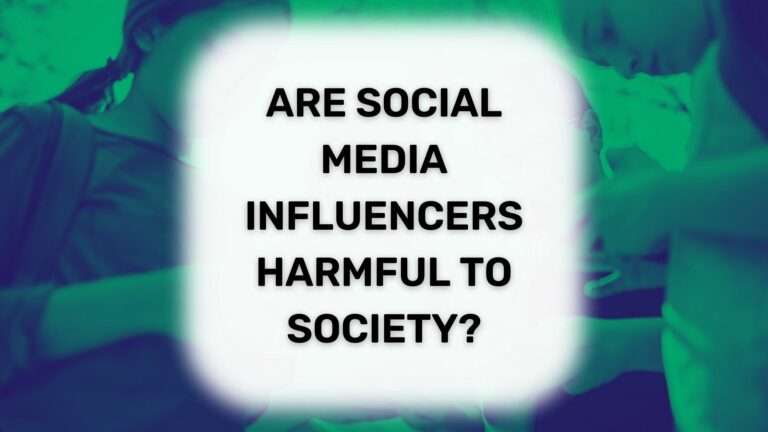What you’ll learn…
Introduction
Social media influencers have become a ubiquitous presence in today’s society. Defined as individuals with a large following on social media who are paid to promote products, they have amassed an enormous influence over their audiences. From fashion and beauty to food and fitness, influencers are everywhere, and their popularity continues to grow. But with this rise has come concerns about their impact on society.
Influence on self-esteem and body image
Social media influencers have a powerful influence on the self-esteem and body image of their followers, particularly among young adults and teenagers.
Impact on young adults and teenagers
Research shows that exposure to social media can increase negative feelings about one’s appearance and lead to an unrealistic desire for physical perfection. In a survey of 1,000 young women, 78% reported feeling worse about their own bodies after looking at images of other people on social media. Similarly, a study of over 10,000 adolescents found that spending over three hours a day on social media was associated with increased symptoms of anxiety and depression.
Psychological effects of social media exposure
Social media influencers often promote a certain type of beauty that can be unrealistic or unattainable for most people. Many influencers use photo editing tools to enhance their appearance and present a curated, idealized version of their lives. This can create an unattainable standard of beauty that can negatively impact the self-esteem of their followers.
To mitigate the negative effects of social media on self-esteem and body image, it is important for influencers to promote a message of body positivity and authenticity.
Promoting positive messages
Influencers should avoid promoting unrealistic standards of beauty and instead focus on promoting self-love and acceptance. Social media companies should also take steps to promote more diverse and inclusive content, and provide resources and support for users who are struggling with body image issues.

Promotion of unrealistic standards
Social media influencers often promote an idealized version of their lives that can be misleading and create unrealistic expectations among their followers. This can be particularly damaging when influencers promote products or lifestyles that are unattainable for most people.
Creating unrealistic expectations
Many influencers showcase their luxurious lifestyles, such as exotic vacations, designer clothing, and expensive homes. While this can be aspirational and entertaining for their followers, it can also create a sense of inadequacy or dissatisfaction with one’s own life.
Misleading product promotion
Influencers often promote products that may be ineffective or even harmful to their followers. Some influencers promote diet and weight loss products that are not backed by scientific evidence, and may even be dangerous. Others promote cosmetic procedures or skincare products that may not be appropriate for all skin types or may have adverse effects.
Potential solutions
To address the promotion of unrealistic standards by social media influencers, it is important for them to be transparent and honest with their followers about their own lives and the products they promote. They should disclose any sponsored content and clearly state whether a product is suitable for all individuals. Social media companies should also implement policies and guidelines to regulate influencer marketing and ensure that influencers are held accountable for their actions.
Ethics and transparency
One of the biggest concerns surrounding social media influencers is the lack of ethics and transparency in their actions. Influencers have the power to shape public opinion and influence consumer behavior, which makes it important for them to act responsibly and ethically.
Sponsored content
One of the main issues with influencer marketing is the lack of transparency when it comes to sponsored content. Many influencers promote products or services without disclosing that they have received compensation for it. This can be misleading to their followers, who may believe that the influencer genuinely supports the product.
Misleading or fake content
Some influencers may engage in misleading or even fake content in order to gain followers or promote a certain agenda. This can include buying followers or engagement, staging photos, or creating fake reviews.
Importance of ethics and transparency
To address these issues, it is important for social media influencers to act with ethics and transparency. This includes disclosing any sponsored content, being truthful about their experiences and opinions, and avoiding any misleading or fake content. Social media companies should also implement stricter guidelines and policies to ensure that they hold influencers accountable for their actions and that their content is authentic and truthful.

Impact on society and culture
The impact of social media influencers on society and culture is a complex and multifaceted issue. While influencers have the power to shape public opinion and consumer behavior, their impact is not always positive.
Reinforcement of stereotypes and prejudices
One of the potential negative impacts of social media influencers is the reinforcement of stereotypes and prejudices. Many influencers perpetuate narrow and idealized standards of beauty, gender roles, and social norms. This can lead to exclusion and marginalization of groups that do not fit these narrow standards.
Influence on consumer behavior
Another glaring issue is the potential impact on consumer behavior. Many influencers promote a consumerist lifestyle, encouraging their followers to buy more products and services. This can contribute to overconsumption and environmental degradation.
Potential solutions
Social media influencers should strive to act responsibly and consider the impact of their actions on society and culture. This includes promoting diversity and inclusivity, avoiding stereotypes and prejudices, and encouraging sustainable consumption. Social media companies should also play a role in promoting responsible behavior by influencers and implementing policies to promote diversity and inclusion.
Conclusion
Social media influencers have become a powerful force in today’s society, with the ability to shape public opinion and consumer behavior. While influencers have many positive aspects, such as providing a platform for diverse voices and promoting social causes, there are also potential negative impacts.
The promotion of unrealistic standards, lack of ethics and transparency, and impact on society and culture are all important issues to consider when evaluating the role of social media influencers. It is important for influencers to act responsibly and consider the impact of their actions on society and culture. Social media companies also have a role to play in promoting responsible behavior by influencers and implementing policies to promote diversity and inclusion.
As consumers, it is important to be aware of the potential biases and influences of social media influencers and to make informed choices. By promoting responsible behavior and transparency, social media influencers can use their platform to create positive change in society and culture. What do you think?







